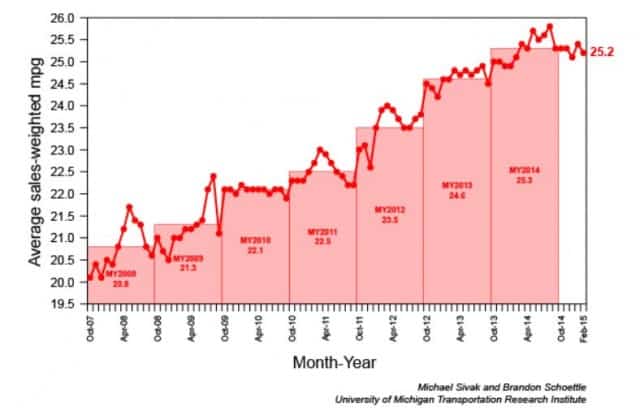 New research from the University of Michigan Transportation Research Institute show a decline in the average mpg for new vehicles sales and that driverless cars in the future may cause more trips.
New research from the University of Michigan Transportation Research Institute show a decline in the average mpg for new vehicles sales and that driverless cars in the future may cause more trips.
Average fuel economy (window-sticker values) of cars, light trucks, vans and SUVs purchased in February was 25.2 mpg, down from 25.4 mpg in January and now just 0.1 mpg higher than a year ago. Overall, vehicle fuel economy is up 5.1 mpg from October 2007*, the first full month of monitoring by researchers Michale Sivak and Brandon Schoettle.
Regardless of fuel economy, autonomous driverless vehicles may reduce the number of vehicles a family needs, but may lead to an increase in total miles driven, reported Sivak and Scholettle.
They examined U.S. National Household Travel Survey data and found a general lack of “trip overlap” between drivers within a majority of households based on vehicle sharing. The study is based on sharing of completely self-driving vehicles that employ a “return-to-home” mode, acting as a form of shared family or household vehicle, creating a possibility of more trip.
In the most extreme scenario, self-driving vehicles could cut ownership from an average of 2.1 vehicles to 1.2 vehicles per household (43%).
On the other hand, the shift could result in a 75% increase in individual vehicle usage from 11,661 to 20,406 annual miles per vehicle (this increase in mileage does not include additional miles that would be generated during each “return-to-home” trip).
*The average sales-weighted fuel economy was calculated from the monthly sales of individual models of light-duty vehicles and the combined city/highway fuel-economy ratings published in the EPA Fuel Economy Guide for the respective models.